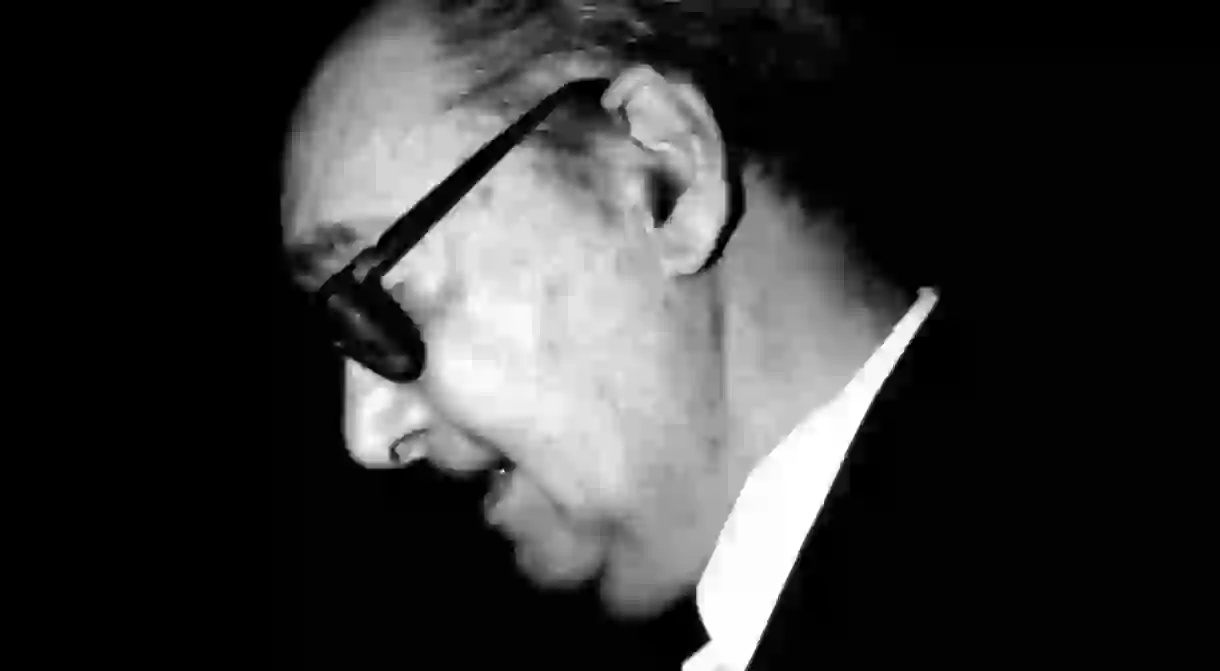The Private World of Juan Carlos Onetti

Juan Carlos Onetti was a Uruguayan novelist credited with being one of the most important Latin American writers of the 20th century and a vital forebear to the Magic Realism of the ‘Latin American Boom’. He is remembered not only as a pioneering writer, but as one of the continent’s many political exiles, as he was forced to flee Uruguay in the mid-1970s.

Juan Carlos Onetti was born in Montevideo in 1909 and raised in a middle class family. He experienced a joyful yet solitary upbringing in which he would lock himself in the cupboard and devour books. Upon dropping out of high school he worked a variety of different jobs before ending up working as editing secretary of Marcha magazine. In the meantime he published his first short stories and novels which met with limited success. His first novel El Pozo (The Pit), was published in 1939 and was highly acclaimed within Onetti’s limited literary circle, however only 500 copies were printed and most were left to decompose in Montevideo’s Barreiro bookshop, which was the only bookshop to stock the novel. Nonetheless Onetti did eventually find success and by the 1960s was established as one of Uruguay’s foremost novelists. He won Uruguay’s National Prize in literature in 1962 following a string of successful novels released in the 1950s and early 60s including the Santa María Sagas, a three-volume cycle of novels and stories set in the fictional port town of Santa María.
In 1974 Onetti was briefly imprisoned by the military dictatorship of Juan María Bordaberry in Uruguay. His crime was to award a literary prize to a short story by Nelson Marra which was considered offensive by the military authorities. He spent six months in Colonia Etchepare, a mental institution, for being part of the jury for the prize. Whilst imprisoned several luminaries of the Latin American literary world, including Gabriel García Márquez, Mario Vargas Llosa and Mario Benedetti, sent letters of protest to the government of Uruguay. After his release he went into exile in Madrid and his international profile began to develop. Despite this new found fame Onetti was largely confined to his home during this period and spent his days reading and writing in bed. Nevertheless his prestige continued to grow and he started to receive literary acclaim worldwide. In 1980 he was recommended for the Nobel Prize by the Latin American Pen Club and in the same year he won the Cervantes Prize, the most important award in the Spanish language, despite being totally ignored by the Uruguayan authorities. He died in Madrid at the age of 85 in 1994.
Onetti’s work is highly original and is thus difficult to compare to any other writers, however it is clear that there were two profound influences on his writing. One of them was the writer William Faulkner who, as with Vargas Llosa, Onetti truly admired. As with Faulkner’s fictional county of Yoknapatawpha in Mississippi, Onetti created an autonomous world the center of which was the fictional city of Santa María. The other influence on Onetti’s work was his mentor Roberto Arlt, an Argentine writer who guided Onetti during his time in Buenos Aires. Onetti’s works were informed by the modernist innovations of Europe but prefigured the symbolism of magic realism, which was to become the dominant style of Latin American fiction for much of the 20th century.
Onetti’s first novel, El Pozo (The Pit), is considered the first modern South American novel and one of the clearest examples of the Hispanic antecedent of existentialist literature, made popular by Jean Paul Sartre and Albert Camus. Onetti’s originality is in his blurring of fact and fiction, and his use of the imaginary world he creates to counterpoint reality. We can see this clearly in Onetti’s statement that ‘who writes because of a necessity must search inside himself, because it is the only place where truth can be looked for’. The clues that help us decode Onetti’s narrative universe are the loss of faith in the certainty of truth, the metaphysical sorrow of the human condition and the sense of futility which surrounds human action. His narrators are detached individuals, who are lost within the maze of Onetti’s textual world and who find themselves unable to adequately communicate their sense of anguish. Whilst he never achieved the same amount of acclaim as some of his contemporaries in Latin American literature his work is a vital adjunct to the literary history of the continent, offering as it does a bridge between the post modernity of Borges, the imaginary worlds of Marquez and the profound bleakness of the European existentialists. His legacy is masterpieces such as: El pozo (The Pit, 1939), La vida breve (A Brief Life, 1950), Los adioses (Farewells, 1954), El astillero (The Shipyard, 1961) and Juntacadáveres (Body Snatcher, 1964).













